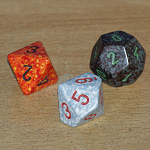A piece of short fiction, written as the introductory vignette for the as-yet untitled game I’m working on. Each chapter of the game will begin with one of these short stories. The idea is to illustrate the game setting and show some of archetypcal player characters.
This one’s intended for the opening chapter, and will therefore be the very beginning of the game text. It’s intended to show the social structures of the game in a way a dry info-dump cannot convey.
A young couple moved furtively through the lengthening evening shadows in the streets of the imperial capital, Vohrleyn.
As freeborn and slave, they were not really supposed to be together. Ennar was an apprentice in the Academy of Knowledge, one of the minority of humans in the greatest city in the world who wasn’t the property of a wealthy member of the master race, the kandar. Tuavu, on the other hand, was far more typical of the city’s human population. She was a slave, a household servant in one the sprawling mansions of the kandar overlords. They’d met when he’s accompanied a guild journeyman to that mansion, carrying out repairs to house’s electrics. They both knew, in their hearts, that the relationship was doomed; if either the guild or Tuavu’s owners found out, that would be the end of it, and they’d never see each other again. But they were young enough to hope; that things might change, and true love might find a way.
“The road at the back of Kalan Street”, said Ennar, “There are fewer patrols there, and more places to hide if we’re unlucky. And then we only have to cross Vothal street and we’re right up to the north wing door where you know the word of command for the lock”.
“Will you be safe returning to your guild”, the girl responded.
“I know several routes back”, he said, “And besides, I’ve guild. Once I’m back in the the streets my own guild patrols, I’m safe. And elsewhere, if I meet a patrol, be it another guild or knights, I’m guild. I’m safe from summary justice. The worst I’ll get is a beating. And you know I’ll risk that for time with you”.
The pair negotiated the narrow twisting alleyways without problem. The few people they encountered, kandar or human, were too preoccupied with their own affairs to notice two young humans doing nothing to draw attention to themselves. All that remained was to cross one busy street, and Tuavu would be home and safe. After which Ennar was streetwise enough to look after himself and get home safely.
Ennar scanned the street. A fair bit of pedestrian traffic, kandar out for evening stroll, a few humans scurrying on errands. They were in noble territory now, the streets patrolled by clan knights rather than guild security. A massive power-waggon, one of the machines built and maintained by Ennar’s guild, rumbled past on its eight fat wheels. Presumably carrying some valuable cargo up from the harbour, it manoeuvred to one side to let a tram pass in the opposite direction.
“Now”, said Ennar, as the tram clattered off into the distance.
The knight seemed to appear out of nowhere. In his multi-coloured ulsoghir-hide armour and plumed helm, he was the last thing they wanted to meet. An adult kandar standing a head taller than the average human, he towered over the pair. He drew his narvork sword as he stepped forward across the road to challenge them.
“So what have we here?”, he said, “Escaped slaves? Or would-be thieves? Who do you belong to? Answer now!”
“I’m guild”, said Ennar, making sure the stylised meshed gears and lightning insignia on his sleeve than denoted his guild was clearly visible, “Let us pass. We mean no trouble”.
“Not so fast!”, he said, “what about her? I see no guild label. Why should I not cut her down as the street rat she is?”. And with those words he slapped her in the side of the neck with the flat of his sword, leaving her sprawling in the dust.
“No” cried Ennar. The knight raised his sword again. But before he could slay the girl, if that really was his intention, a piercing whistle cut through the scene. The knight hastily stepped back, narrowly avoiding being run down by another tram, this one a train of four empty vehicles lashed together, returning to the depot at the end of the day.
Once it had passed between them and the knight, Ennar and Tuavu were nowhere to be seen.
- – - – -
At that same moment, within the house of Kordath Ardreyr, the very place to which Tuavu has been attempting to return, one of the kandar ladies of the house was entertaining a visitor.
“So, cousin. Tell me about your travels”, asked Asnelina d’n Zuvara Ardreyr.
“Where would you like me to start”, replied the visitor, a young kandar man named Elneyr d’n Lendol Ardreyr.
“Tell me about the places you’ve travelled to”, Asnelina said, “What are the cities of the north like? Have they really fallen into barbarism as people say, now that they’re no longer a part of the empire?”.
“Don’t believe all you hear”, he replies, “They still have their kandar lords ruling the cities. Humans have more freedom there, it is true, and there are many more of them, but the cities still belong to we kandar. The guilds like The Academy of Knowledge and The Academy of The Mind do not stop at the borders of the empire. Neither do the merchant companies, the purpose of my travels”.
“So the north is really the same as here, only colder?”.
“Not quite”, Elneyr replies, “The cities are far apart, and once you get north of Calbeyn the lands between are empty of civilisation, occupied by feral human, vordral, sssraa, and worse. You only travel the roads in large, well-defended groups”.
Asnelina shuddered.
“Anyway”, he said, “What’s been happening here in Vohrleyn while I’ve been away?”
“The usual”, she replied, “Plots, and rumours or plots. Everyone accusing everyone else of either plotting to overthrow the emperor, or spying for Karmork. Or both. Four Karmorki spies beheaded in front of the citadel last week”.
“Serious, then?”.
“His spymaster and the psionics seem to think so”, she replied, “Word is that they had all four mind-reamed to establish guilt. One was even a high-ranking wizard himself”.
“Karmork worries a lot of people in the north too”, said Elneyr, “Plenty of Karmorki ships at Ravenah. The merchants would trade with them, but never trusted them. And they’re worried about Karmork in Calbeyn especially. Karmork sympathisers amongst the opponents to that city-lord they’ve got there, who’s far too tolerant of humans. If Calbeyn were to fall to Karmork, they would control all trade between the empire and the north”.
“Will that really affect us?”, Asnelina asked, “What does it matter here what happens in the north?”
“It will more than inconvenience a lot of merchant companies, including mine”, came the reply, “Trust me on this. There will be war between Karmork and the empire in our lifetimes. The more powerful we allow them to get, the harder it will become for us to defeat them. From what you say about those executions, the way may already have started. It’s just that nobody calls it a war yet”.
“Are you so sure of that?”, she asked, “Karmork is far far away, and our legions are strong. They would surely resist a direct invasion? The emperor surely has a far bigger problem with rivals from within. There are plenty within our clan who seek the throne, and might not be prepared to wait until he dies. And Clan Alkurvil would love to take back the throne from our clan”.
“And those divisions are precisely what Karmork will exploit”, Elneyr responded.
Both heard a muffled crash, as if a heavy object had fallen in a distant part of the building.
“What was that?”, said Asnelina,
Then all the lights went out.
- – - – -
Tuavu and Ennar had taken a long circuitous route after that encounter with the knight, looping back through guild territory and dodging at least one patrol, before they finally managed to reach the door to the north wing of the mansion where Tuavu worked as a slave.
Tuavu saw the crumpled form first, lying right by the door. An armoured kandar, lying in pooling blood, his sword dropped on the ground beside him, and the plumed helm rolled across the narrow street, exposing long hair dyed in black and gold streaks. They had both seen that helm before. Behind him, the door lay open, the word-lock shattered and burned.
Ennar turned the body over to expose his face. It was indeed the same knight they’d encountered in very different circumstances a short while before. Now he was dead or at least dying from massive wound in the chest made by some weapon that had burned though his armour.
The knight opened his eyes and tried to speak.
“You… you must stop…”, he said, weakly, every word an effort.
“What happened?”, asked Tuavu, “Who did this?”.
“Come to kill. Must warn…”. With those words, his head fell back, and the knight died.
“Assassins”, said Ennar, “In your master’s house”.
 Not quote sure what to make of this
Not quote sure what to make of this  There has been some discussion of late over whether the concept of traditional Tolkien-via-Gygax fantasy races is inherently racist. Are orcs really racist caricatures of black people?
There has been some discussion of late over whether the concept of traditional Tolkien-via-Gygax fantasy races is inherently racist. Are orcs really racist caricatures of black people? I’ve got mixed feelings about the
I’ve got mixed feelings about the